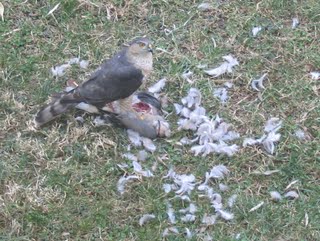The epic of Gilgamesh is the oldest known. Recently made more accessible in a fresh version by Stephen Mitchell, it tells the story of an arrogant king who takes advantage of his subjects, despoils nature, and offends the gods. When his best friend dies under a god's curse, Gilgamesh seeks the secret of eternal life, hears the story of a flood that almost destroyed humankind, and finally finds, then loses a plant said to have the power of restoring youth. The story in Mitchell's version ends with Gilgamesh arriving home and describing the wonders of his great city.
The ending is disappointing. It doesn't answer the key question: Does Gilgamesh grow up and change his ways?
Did facing up to his friend's death and wandering in the wilderness in search of eternal life bring about some great alteration in Gilgamesh's behavior? The verses don't say explicitly. Some subtle clues suggest that, on his return, he at least has the potential for humility (sadly lacking in his early life) and a more neighborly attitude toward both his subjects and the gods.
Clue #1 is how Gilgamesh reaches the "island of the blessed" where dwell his ancestor Utnapishtim and his wife, who survived the great flood. (I picture them being played in the film version by Billy Crystal and Carol Kane, reprising their roles as Miracle Max and his wife in The Princess Bride.) Gilgamesh glides down a river, uses dozens of poles to push a boat across a stagnant sea, then stands up and holds a robe so that the boat can sail the last distance. In other words, first he coasts -- which is what he's been doing all his life, and then he uses his own brawn -- still in keeping with how he has always lived.
However, the other shore cannot be gained by Gilgamesh's own effort; he must allow the wind to glide the boat to its landing. In the Sumerian pantheon, the wind god is Enlil, the same god who decreed that Gilgamesh's friend, Enkidu, must die. Gilgamesh stands as a mast. A mast would come from a tree, and trees were prized in Mesopotamia as spoils of war (Roberts, 2006). (Earlier in the text, after slaying a monster, Gilgamesh celebrates his victory by chopping down all the trees in the forest that the monster was guarding.) Standing in the boat, Gilgamesh offers himself to the wind, to Enlil, as a conquered state might offer trees as tribute. When he arrives at the home of Utnapishtim, he is no longer keen to do battle, but is ready to listen to his ancient ancestor reveal the secrets of the gods. A man of action, not of words, in his early life, Gilgamesh is showing signs of change.
Clue #2 is how Gilgamesh loses the magic youth-restoring plant. He lays it down while he bathes in a pool at the end of a day's traveling, and a snake smells it and carries it away, shedding its skin to show that it has been transformed (or will be, once it eats the plant). Bathing in a pool of water is also a symbol of transformation, much older than Jesus' baptism at the hands of John the Baptist. Gilgamesh is truly frustrated and sad when he dries off and realizes that his journey to the edge of the world has been in vain. But in my imagination, I can see him watching the snake's theft and deciding to do nothing about it. After all, he was having second thoughts about this "secret of youth" idea. How long would the youth last? When it wore off, would he look his actual age? Or would he still be younger, just not exactly youthful? If he ate the herb many times, would he finally turn to dust when the last dose wore off? Once the pool has revived him, he may decide that the magic plant isn't the solution after all.
Clue #3 is that, at the gates of Uruk, Gilgamesh praises the beauty of Ishtar's temple, rather than railing at her, as he did earlier in the story after she propositioned him. He is no longer angry at the gods, but I don't think he feels subservient to them either. I can imagine him sprucing up the temples, as Book I of the epic describes, not as an offering, but just as one good neighbor would help out another.
This change toward a less insular and more constructive attitude is supported by the text in Book XII, which Mitchell does not include in his translation. The additional material includes the story of the huluppa tree, which Gilgamesh cuts down for Ishtar, to make her a bed and a throne. Yes, he's still cutting down trees, but for a purpose, not in an emotional frenzy. Maybe he and Ishtar have both found that they need someone to talk to.
Whether Gilgamesh becomes a great and wise king, I can't say, but I do see him as a changed man, more ready to listen, perhaps ready to give up bluster and arrogance for a more neighborly relationship with both the gods and his own people. As Book I relates, he finally shows some concern "for the welfare of the people and the sacred land." He has at least the potential to grow further.
References:
Mitchell, S. (2004). Gilgamesh: A new English version. New York: Free Press.
Roberts, J. (2006, July). "Centering the world": Trees as tribute in the ancient Near East. Transoxiana: Journal Libre de Estudios Orientales, 11. http://www.transoxiana.org/11/roberts-near_east_trees.html



